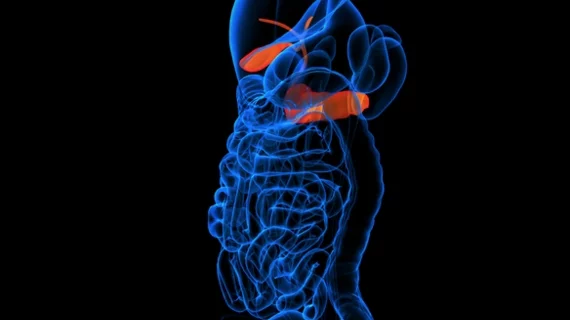CT imaging features forecast outlook for patients with aggressive pancreatic cancer
Adding preoperative imaging features to standard clinical information can help providers better predict survival in patients with pancreatic cancer, new research published Wednesday confirmed.
Pancreatic ductal adenocarcinoma or PDAC is the most common type of pancreatic cancer, but its aggressiveness means only 9% of patients survive at least five years.
Radiology and computer science experts note that radiomics, which extracts many quantitative features from imaging exams invisible to the human eye, has been successful for other cancer types. So, they decided to apply it to PDAC, sharing their process in AJR.
“Considering that CT is the most commonly used imaging modality for the initial evaluation of pancreatic cancer, we explored the additional value of CT radiomics features in predicting patient outcome[s],” Seyoun Park, PhD, with Johns Hopkins University School of Medicine’s Department of Radiology and Radiological Sciences, and co-authors wrote.
They discovered the 10 most relevant radiomic features were 82.2% accurate at classifying those expected to survive more than three years compared to those with less than one year.
The conclusions are based on 153 participants with surgically resected PDAC who underwent preoperative CT between 2011 and 2017. After manually segmenting the 3D volume of entire pancreatic tumors and background pancreas information, Park et al. extracted nearly 800 radiomic features.
The 10 most relevant features—kurtosis, cluster shade, tendency and prominence, among others—were used to classify high-risk (survival time less than one year) versus low-risk individuals (more than three years).
“We found that radiomics features extracted from tumors and from the nonneoplastic pancreas can be used to improve survival prediction models of patients who underwent surgery for PDAC,” Park and colleagues concluded. “This algorithm could be combined with other pathologic and genetic biomarkers.”
Read the full study here.

